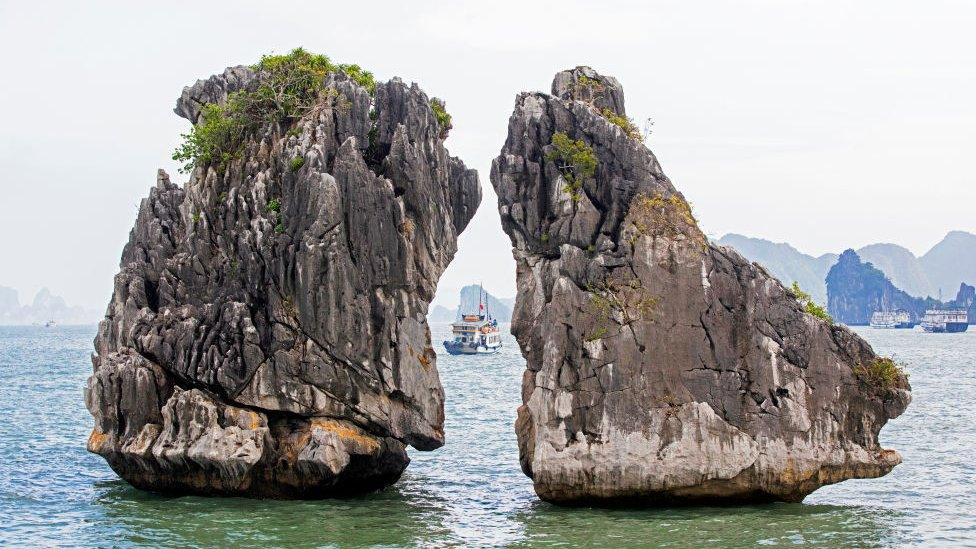Vietnam's iconic 'kissing rocks' at risk of collapse
- Published

Vietnam's iconic "kissing rocks" in the heart of Ha Long Bay are at risk of collapse, a report has warned.
Ha Long Bay in Quang Ninh province is dotted with hundreds of tiny islets, attracting 4 million tourists in 2019.
The twin rocks, which rise out of the bay and appear to touch - or "kiss" - are highly popular with visitors.
But experts warned in a July report that rising sea levels and fishing boats travelling too close are causing the rocks to erode.
Ho Tien Chung of Vietnam's Institute of Geosciences and Mineral Resources said illegal fishing and unregulated tourism were helping to speed up the erosion of the rocks.
While the institute was carrying out research for the report, workers observed one tourist boat stopping within just 19 metres of the islet.
Experts observed deep fissures crossing the rocks, warning that they could collapse if action is not taken to preserve them.
"Tourists can see the rocks that are precarious at low tide," Ho Tien Chung said.
"The water level then is low, exposing the supporting foot of the rocks which are gradually being eroded, causing a risk of collapse if no measures are taken to protect and reinforce them soon."
Islets in the bay have long been buffeted by coastal erosion and several other notable tourist attractions have been heavily damaged in recent years by buffeting seas.
To counteract the effects, the report urged officials to introduce new regulations to the bay, including limiting the speed of boats passing through it to just 5-10kmh (3-6mph).
Local fishermen should also be encouraged to avoid fishing around the rocks to reduce churn and cement could be inserted into cracks in the islet to shore up its foundations, the report added.